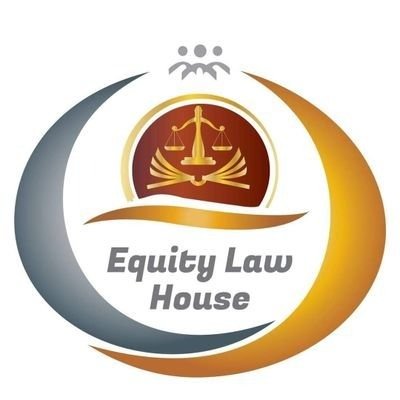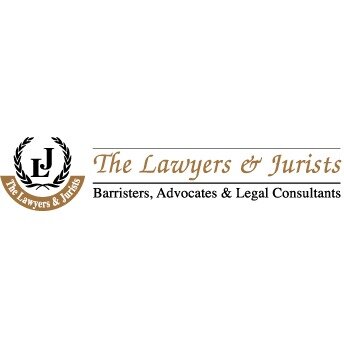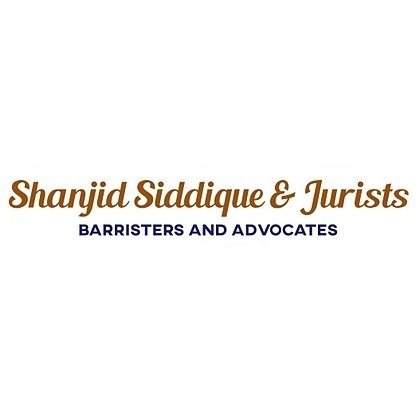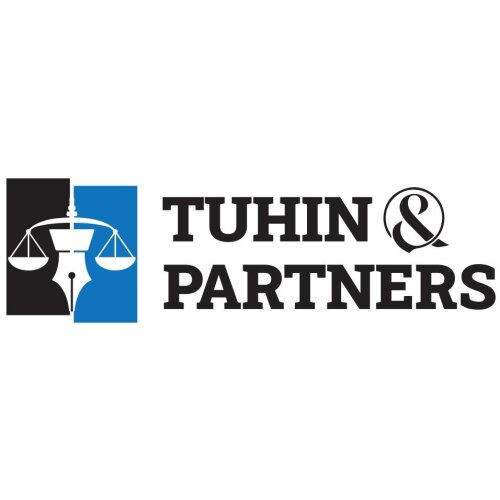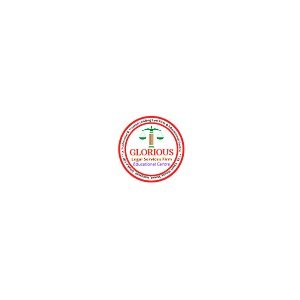Best Civil Rights Lawyers in Dhaka
Share your needs with us, get contacted by law firms.
Free. Takes 2 min.
List of the best lawyers in Dhaka, Bangladesh
About Civil Rights Law in Dhaka, Bangladesh
Civil Rights Law in Dhaka, Bangladesh refers to the legal framework that protects the fundamental rights and freedoms of individuals residing in Dhaka, the capital city of Bangladesh. These rights and freedoms are essential for maintaining a fair and just society, guaranteeing equal treatment and non-discrimination for all citizens.
Why You May Need a Lawyer
Engaging a lawyer specializing in Civil Rights can be crucial in various situations. Here are some common instances where you may require legal assistance:
1. Discrimination: If you believe you have been discriminated against based on factors like race, religion, gender, disability, or national origin, a lawyer can help you understand your rights and pursue necessary legal action.
2. Police Brutality: In cases of unwarranted violence or abuse by law enforcement, a lawyer can provide guidance on filing complaints, seeking justice, and holding the responsible parties accountable.
3. Unjust Dismissal: If you have been wrongfully terminated from your job due to factors like political affiliation or exercising your civil rights, a lawyer can assist you in pursuing legal remedies.
4. Freedom of Speech: When your freedom of speech is infringed upon, a lawyer can advise you on your rights and potential legal actions to protect your freedom to express opinions and ideas.
5. Access to Public Services: If you face discriminatory barriers in accessing public services, such as education, healthcare, or housing, a lawyer can help you navigate the legal system and advocate for your rights.
Local Laws Overview
The legal landscape in Dhaka, Bangladesh is governed by various laws that protect civil rights. Some key aspects of these laws include:
Fundamental Rights: The Constitution of Bangladesh guarantees fundamental rights to its citizens. These rights encompass personal liberty, freedom of speech, religion, equality before the law, and protection from discrimination.
Anti-Discrimination Laws: Bangladesh has enacted laws to prohibit and combat discrimination based on race, religion, gender, age, disability, and more. These laws ensure equal opportunities and treatment for all individuals.
Human Rights Commissions: Dhaka has a National Human Rights Commission (NHRC), an independent body responsible for promoting and protecting human rights. The NHRC investigates complaints, conducts inquiries, and provides recommendations to relevant authorities.
Labour Laws: Specific labor laws exist to safeguard the rights of workers, including the right to fair remuneration, safe working conditions, and freedom from child labor and forced labor.
Frequently Asked Questions
Q: What should I do if I face discrimination in Dhaka?
A: If you experience discrimination, gather evidence, document incidents, and consider reaching out to a lawyer specializing in Civil Rights to understand your rights, explore legal options, and file a complaint.
Q: How can I file a complaint against police brutality?
A: To file a complaint against police brutality, document the incident, gather evidence, and approach the appropriate authorities such as the Police Bureau of Investigation or the National Human Rights Commission. Consulting a Civil Rights lawyer will also provide guidance in pursuing legal action.
Q: Are there any organizations in Dhaka that provide legal aid for Civil Rights cases?
A: Yes, organizations like the Bangladesh Legal Aid and Services Trust (BLAST) and Ain o Salish Kendra (ASK) offer legal aid services, including assistance in Civil Rights cases. Contacting these organizations can be helpful in accessing legal advice and support.
Q: What legal protections exist for workers in Dhaka?
A: Workers in Dhaka are protected by labor laws that ensure fair wages, safe working conditions, freedom from exploitation, and the right to form trade unions. Familiarize yourself with the relevant labor laws and consult a lawyer for further assistance.
Q: Can I be penalized for exercising my freedom of speech in Dhaka?
A: The Constitution guarantees freedom of speech in Dhaka, unless it incites violence, creates public disorder, or goes against the interests of the state. However, restrictions on freedom of speech may exist in certain situations, so it is advisable to consult a lawyer if you have concerns.
Additional Resources
Here are some helpful resources related to Civil Rights in Dhaka, Bangladesh:
- National Human Rights Commission (NHRC) of Bangladesh: https://nhrc.org.bd/
- Bangladesh Legal Aid and Services Trust (BLAST): https://www.blast.org.bd/
- Ain o Salish Kendra (ASK): https://www.askbd.org/
Next Steps
Should you require legal assistance in Civil Rights matters in Dhaka, it is advisable to take the following steps:
1. Collect relevant documents and evidence related to your case.
2. Research and contact reputable Civil Rights lawyers in Dhaka.
3. Schedule consultations with potential lawyers to discuss your situation and evaluate their expertise.
4. Choose a lawyer who aligns with your needs and has a proven track record in Civil Rights cases.
5. Work closely with your chosen lawyer to navigate the legal proceedings and protect your civil rights.
Lawzana helps you find the best lawyers and law firms in Dhaka through a curated and pre-screened list of qualified legal professionals. Our platform offers rankings and detailed profiles of attorneys and law firms, allowing you to compare based on practice areas, including Civil Rights, experience, and client feedback.
Each profile includes a description of the firm's areas of practice, client reviews, team members and partners, year of establishment, spoken languages, office locations, contact information, social media presence, and any published articles or resources. Most firms on our platform speak English and are experienced in both local and international legal matters.
Get a quote from top-rated law firms in Dhaka, Bangladesh — quickly, securely, and without unnecessary hassle.
Disclaimer:
The information provided on this page is for general informational purposes only and does not constitute legal advice. While we strive to ensure the accuracy and relevance of the content, legal information may change over time, and interpretations of the law can vary. You should always consult with a qualified legal professional for advice specific to your situation.
We disclaim all liability for actions taken or not taken based on the content of this page. If you believe any information is incorrect or outdated, please contact us, and we will review and update it where appropriate.




